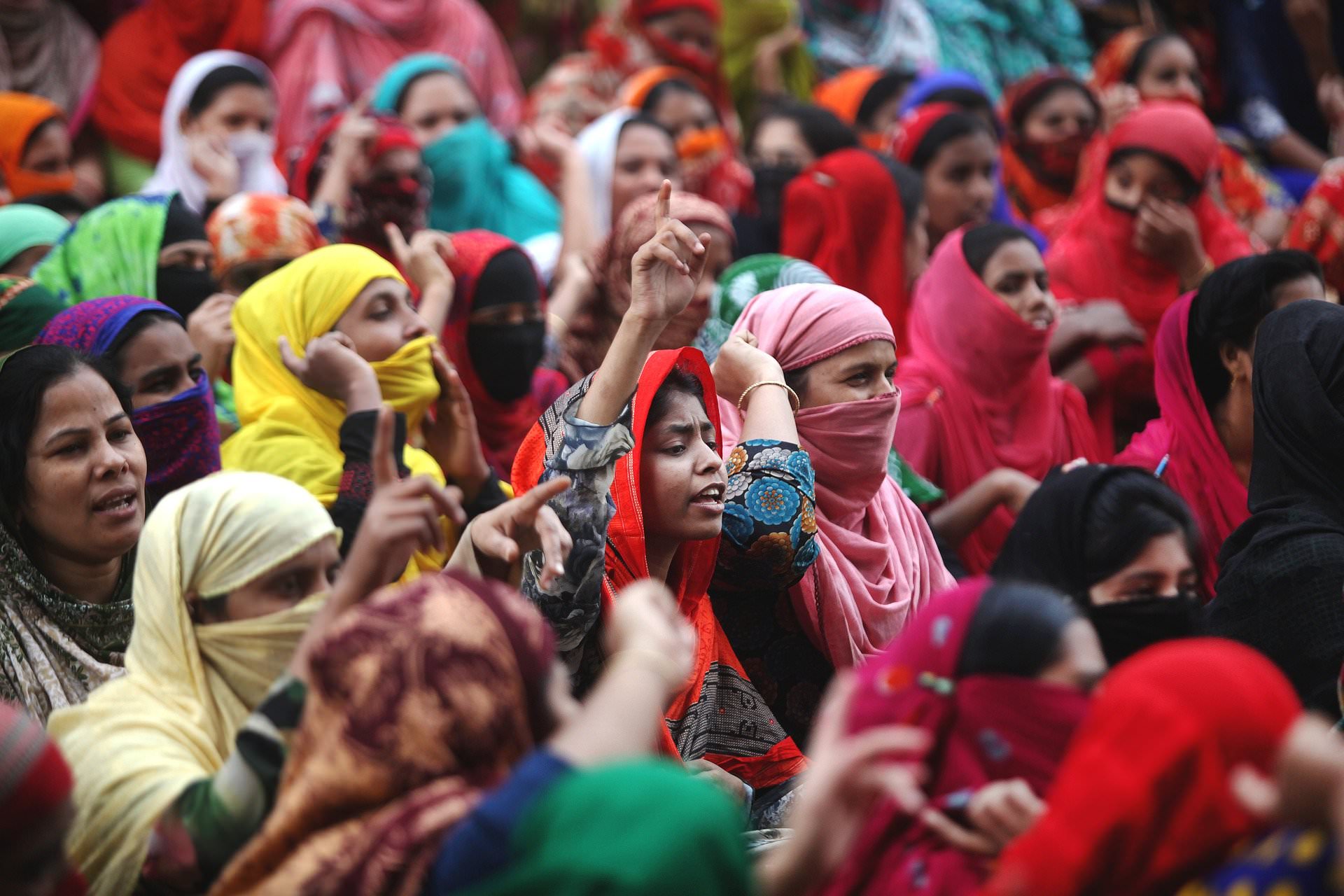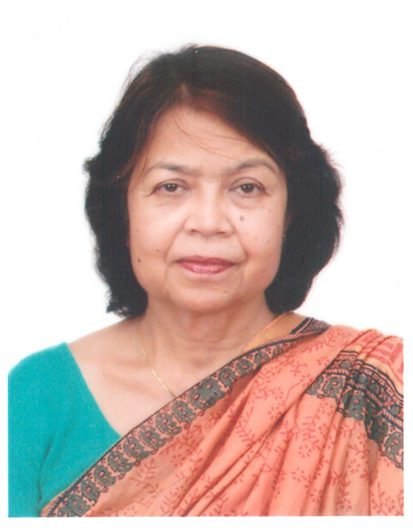

Rounaq Jahan
Fifty years ago, Bangladesh gained independence from Pakistan and began its journey toward becoming the economic powerhouse that it is today. In the Mittal Institute’s upcoming “Bangladesh at 50: Looking Back, Looking Forward” conference on March 3–4, 2021, more than 20 panelists will look into the arc of Bangladesh’s history, from the Language Movement to the present, and consider where the nation will head in the future. Leading Bangladeshi scholars and activists will discuss the remarkable economic and human development of independent Bangladesh and the important role of civil society in the country’s trajectory.
We spoke with one of the experts who will participate in the “Political Development: Making, Unmaking, and Rebuilding of Founding Principles” panel, Rounaq Jahan, Distinguished Fellow at the Centre for Policy Dialogue in Bangladesh, about the political history of Bangladesh and what needs to be done to push forward in the future. Previously, she served as a Professor of Political Science at Dhaka University and a Senior Research Scholar and Adjunct Professor at Columbia University.
What are the founding principles of Bangladesh? Have these principles been held up effectively by political actors over the past 50 years?
The quarter-century of Bengali nationalist struggle against Pakistan built a consensus around four principles that were later enshrined in the 1972 Bangladesh Constitution as the fundamental principles of the state: nationalism, democracy, secularism, and socialism. After independence, Bangladesh began its journey as a multi-party parliamentary democracy avowing secular values and socialist ideals, but in the last 50 years has faltered in making steady progress along the path of the founding principles. There have been deviations and breakdowns, but also renewals. Many actors from different fields — politicians, military, civil bureaucracy, business, civil society — have played a role in the unmaking and upholding of the founding principles.
Democracy was the first foundational principle that came under assault. Within four years post-independence, the state moved in an authoritarian direction, and Bangladesh was ruled for 17 years by military-dominated regimes. Even after returning to civilian political rule, many of the undemocratic practices introduced by the military regimes were perpetuated; elected political governments even added their own undemocratic practices. Bangladesh has consistently scored low in all global surveys of democracy. Recent trends of rising authoritarianism, flawed elections and repression of political opposition and media have raised questions about the democratic future of Bangladesh.
The initial constitutional commitment to two other foundational principles, secularism and socialism, were negated when the military took power. Through martial law ordinances, the first military ruler removed secularism as a fundamental principle and withdrew prohibition on religion-based political organizations, thereby creating opportunities for abuse of religion for political purposes. The second military ruler went a step further and made Islam the state religion. Secularism was finally reincorporated into the constitution through the 15th amendment in 2011, but Islam still remains the state religion.
The military rulers also diluted the commitment to socialism. Socialism was redefined as “economic and social justice”; the policies for expanding public ownership over financial institutions and industries that had been initiated after independence were reversed, and state support for market-friendly policies have been initiated and sustained by successive regimes. Mainstream political parties also stopped talking about socialism. Bangladesh has, over the years, emerged as a developmental success story with a reduction in poverty, but it has become a more inegalitarian society.
As the new nation of Bangladesh evolved after 1971, what challenges did it face in its political development and processes?
Unlike other states in South Asia that won freedom from colonial rule through political negotiations, Bangladesh won independence through a bloody war of national liberation. Thousands of people from all walks of life participated in the liberation war, which kindled expectations that post-liberation Bangladesh would be not simply an independent nation, but a radically transformed place. The party leading the nationalist struggle, the Awami League (AL), had to build a new state, consolidate a new nation, and meet these high expectations of the populace. But the existing political and administrative institutions were weak and not prepared to usher in revolutionary changes.
After liberation, thousands of freedom fighters refused to give up arms, and leftist political groups began armed struggles in different regions. The AL regime had to turn to its main asset, the father of the nation, Bangabandhu Sheikh Mujibur Rahman, to bring stability and order in the new state. Though he became the Prime Minister in a parliamentary democracy, Mujib had to use his personal stature to settle disputes between feuding factions in his political party, civil administration, and the military. While his personal rule helped stabilize the new state, it constrained long-term development of institutional behavior. He towered over all institutions — parliament, administration, and political party.
The informal practice of concentration of power in the hands of the chief executive was formalized during the 15 years of military rule between 1975 and 1990. Military rulers also controlled the media and initially banned political parties. Later, those military rulers floated state-sponsored political parties, engineered elections, and “civilianized” themselves. These undemocratic practices left a lasting mark on the evolution of political development in Bangladesh.
Does Bangladesh still face any of these political challenges today, or have those challenges shifted focus to something new?
The undemocratic practices introduced by military rulers were not completely rejected by the elected political governments that followed, and political opposition always faced repression. In the early years, rule of law remained weak, as did accountability institutions. Money and muscle began to dominate electoral and party politics, making politics become confrontational and exclusionary. A winner-takes-all culture set in that ultimately marginalized the loser, and political discourse became increasingly intolerant — with little space for public reasoning.
Today, the political opposition, facing severe repression and with narrowing opportunities for challenging the ruling regime through competitive electoral contestation, has become largely ineffective. As a result, the national parliament remains devoid of an effective opposition and appears to demonstrate little capacity to demand accountability from the executive. In recent years, the media and civil society are facing pressure, and the Digital Security Act has had a chilling effect on freedom of expression.
What should the political priorities of Bangladesh be over the next 10–20 years? What must the Bangladesh government do to promote inclusivity and democracy?
Bangladesh has made significant strides in social and economic development. It is high time for the nation to prioritize building stable democratic institutions to sustain its long-term development.
The most urgent task is the restoration of an independently supervised process of free, fair, and competitive elections. The parliamentary process needs to be reconfigured to ensure a credible role for the opposition, which must be recognized as a central pillar of the democratic process. The system of authentic inner party democracy must be established. A system of public funding of the elections and party organizations should be developed in order to reduce the supremacy of money over the electoral process and the domination of electoral bodies at all levels by business interests.
The practice of supremacy of the executive over the legislature must be abandoned and a system of full accountability of the government to the electorate must be restored. The supremacy of the rule of law based on the full independence of the judiciary where one law for all prevails without partisan application of law enforcement must be reaffirmed. The commitment to an independent, unfettered media must be reiterated. ☆
———————
☆ All opinions expressed by our interview subjects are their own and do not reflect the views of the Mittal Institute and its staff.
